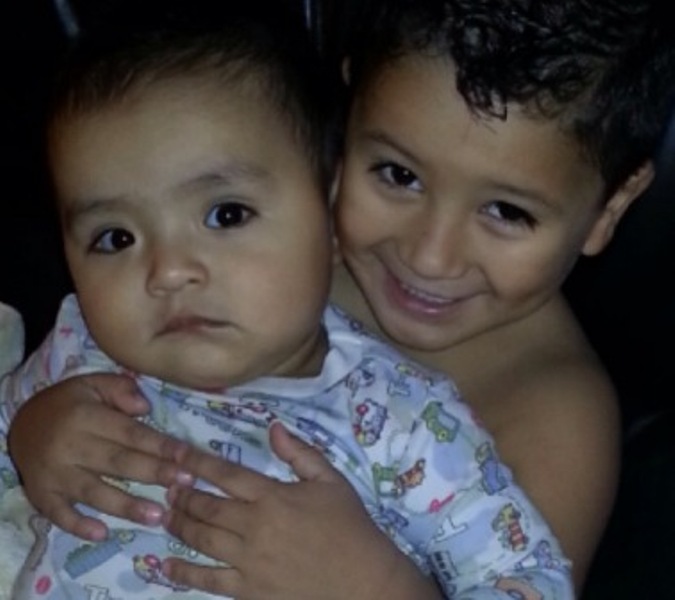Emotional Support
The article reads as follows:

Emotional Highs and Lows After Birth
Most new mothers will experience a range of emotional ‘highs’ and ‘lows’, in the days and weeks following the birth of their baby. These will not only stem from the normal hormonal changes, but also the sheer physical, emotional and spiritual experience of giving birth, her feelings about being a mother (or mothering another child) and the level of love and support she has around her. Emotions will be very different, for each individual woman and if this is your second or subsequent baby, you may experience similar feelings to your previous birth/s, or they could be completely different.
Emotions can be fleeting, or ongoing. They can periodically surface and regress, through various phases during the postnatal recovery period. This ‘roller coaster’ of emotions may feel similar to what you experienced at times during your pregnancy. However, some women will find that they stay on a fairly even keel, possibly ‘waiting’ for emotions that do not seem to come. Your feelings may be intertwined with caring for your baby, feeding them and/or how your baby is behaving. You may feel confident with caring for, and feeding your baby, or confused and overwhelmed if you thought your mothering was going to be easier than it is. Perhaps the responsibility of caring for your new baby feels quite daunting.
Fathers can also experience emotional ‘highs’ and ‘lows’ after the birth. For some it is the sheer excitement of having witnessed their baby being born, possibly with feelings of euphoria and amazement, or perhaps extreme relief that your partner and the baby are both O.K. This can often be mixed with feeling physically exhausted, and possibly gradually having a realization of actually being a ‘father’ and/or having a new sense of responsibility.
Both the woman and her partner, or support person, may reflect frequently on the labor and birth. Questions may come up about why it unfolded the way it did. Mothers who experienced (and fathers who may have witnessed), a labor and birth filled with interventions, or emergency procedures, can often feel numb or shocked, and may need some time to integrate what has happened. Some may feel angry, or upset, about how things were done (or not done). Others may feel that it doesn’t really matter what happened, as long as both the mother and baby are fine. There may be feelings of acceptance, or possibly anger and/or disappointment.
You may find that talking with each other, or a friend can help, even though it won’t change, or necessarily resolve, any issues. However, it may help to ”get it off your chest” – so to speak. Alternatively, talking to the caregiver (or hospital staff) can often help to clarify why certain decisions were made, or why the birth turned out the way it did. If the labor and birth are continually on your mind, or negative feelings don’t seem to go away, it may be necessary to discuss the birth with a counselor, or your childbirth educator (if you attended antenatal classes). This may be a way to debrief, and integrate the labor and birth.
On days 1 to 3 you may be feeling:
- Like your existence is almost surreal. ‘Cocooned’ in your own world, everything may appear to be in slow motion.
- You are not aware of, or wanting to be involved in, the outside world.
- Euphoric. Floating on an amazing high, being absorbed in the baby and unable to sleep.
- Numb and exhausted. Aware of the baby, but feeling removed.
- In awe of your beautiful creation. Feeling honored and privileged to have this little one as part of your life. Finding it difficult to relate to the reality that this baby “Is really mine!”
- Sheer exhaustion, if the labor was long and difficult, or shock if it was a very fast labor, or involved medical interventions.
- Like the labor and birth scenario is playing over and over in your mind. Wanting to talk about this and share your experiences. Needing to relive, and retell the birth story.
- Feeling lonely when your partner leaves the hospital (or if the father, leaving your partner and baby). Wanting them to be close by.
- Excited about having visitors, ringing people and sharing your news.
- Relieved that you and your baby are well and healthy.
- Scared and anxious if your baby is unwell, or frightened and worried if they need to spend time in the intensive care nursery.
- Confused and unsure about your mothering and feeding. Upset if your baby is not behaving the way you expected.
- Self absorbed in your own recovery, and possibly not as interested in the baby as expected.
- Pride in yourself, and feeling invincible for getting through the labor.
- Missing your other child(ren) if in hospital, worried about how they are.
On days 3 to 5 you may be feeling:
- More aware of what is going on around you and beginning to notice hospital staff coming and going, or more aware of your home environment, if at home. Starting to become more interested in news and current affairs.
- More aware of your other child(ren)’s needs, and their involvement with the baby.
- You are coming down from your sleepless ‘high’ and suddenly feeling exhausted and overwhelmed.
- Teary as the milk comes in, but unsure why. Every time you look at your baby tears may come to the surface, or you may cry for periods of time.
- Tender, vulnerable, irritable and sensitive. Upset if feeding is not going smoothly, or staff are giving conflicting advice, or your baby is unsettled.
- That the significance of parenting is exciting, or daunting.
- That visitors have become more of a hindrance than a help. Possibly missing your partner (or other children) and just wanting to go home.
- As the partner, upset and helpless that your partner is emotionally upset with ‘the blues’ and you do not know how to support her.
On days 5 to 7 you may be feeling:
- A range of feelings about being home again. This may be relief, or feeling frightened and anxious. You may feel that it is wonderful and nurturing for all of you to finally be alone for a while.
- Happy that your partner and baby are back home with you.
- More relaxed, because you can now be with your other child(ren).
- Confident when handling your new baby, or worried when your baby becomes unsettled, and cries for long periods.
- A little lost without the constant reassurance of having staff ‘on call’.
- Tired or exhausted, if you have been unable to rest much in the last few days.
- Feeling overwhelmed with having to take on the ‘domestic role’ again, once home.
- Unsure about “Am I doing this right?”
- Worried about your other child(ren). Feeling guilty that you do not have enough time for them with the new baby.
- More in charge, and happy to be taking control of doing things your way now.
On days 7 to 14 you may be feeling:
- Confident and ready to take control again.
- Ready to enter the outside world now, bearing in mind the first outing can take some time and planning.
- Still very tired and exhausted from the birth.
- Torn between your older children needs, the baby’s needs and that of your own.
- Out of your depth, or continually asking yourself “Am I a good mother?” or “Am a good father?” Perhaps you can’t seem to settle and soothe your baby, who seems to have regular periods of crying.
- Sad, disappointed and/or isolated if there is little emotional support, or the support you have been receiving stops or starts to winds down dramatically, especially when your partner returns to work.
- A reluctance to want to return to the ‘real world’.
- Of being more comfortable, as you start to be more in tune with your baby and their needs.
Reference
Emotional Highs and Lows After Birth (entire article taken from http://www.birth.com.au/emotional-and-physical-recovery/emotional-highs-and-lows-after-the-birth?view=full)
Picture of my precious godchildren Angel “Sebas” and big brother Cesar

